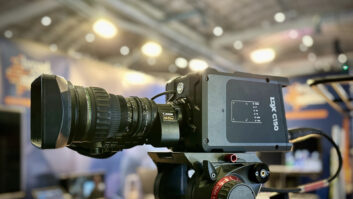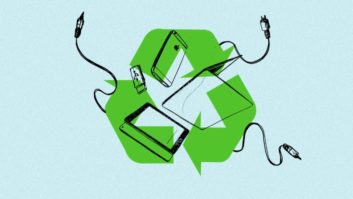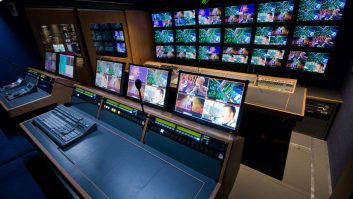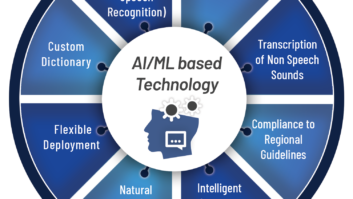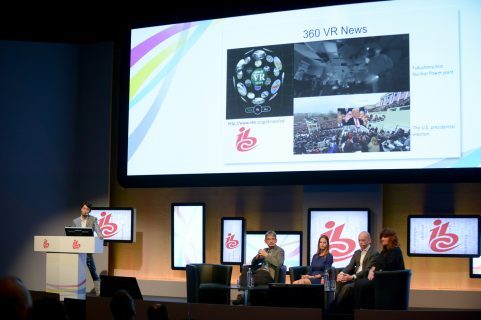
The next 20 years are likely to see more technological innovation than the world has seen in the past 300 years, and Louisa Heinrich’s ‘Inventing the Future’ panel looked to predict and analyse some of the possibilities.
Hiroyuki Kawakita, a research scientist at NHK, Japan, showcased the broadcaster’s experimental work using stereoscopic TV as an overlay to mobile phone image capture. Another project was very high-resolution 360˚ footage (captured in Patagonia) using a 4K image for each ‘eye’.
Nils Lenke of Nuance Communications explained how ‘intelligent assistants’, – already present in vehicle audio and some home automation systems – would grow exponentially. He talked about Amazon’s Alexa, and how it – and similar concepts – would expand and become even more versatile and how the internet giants would no doubt try to dominate.
“It will be usual that these AIs will talk to each other. But would you let yours talk to your bank?”
Sasha Schriber, from Disney Research in Zurich, supplied a compelling demo of how Disney prepares for current and future projects, not least in tough-to-render problems like snow (real, and collected from Davos for digitisation), human skin and eyes, and with clever applications such as their Cardinal ‘script to screen’ time-saving software.
George Wright, head of internet research, BBC R&D, explained that huge progress was being made. Notably, projects such as VR had moved out of the lab and was now in the hands of the commissioners and for delivery.
“But some of our experiments fail. It isn’t always easy to hit the sweet spot.” Wright said he had no doubt that machine learning and AI would remain of huge interest to the BBC.

